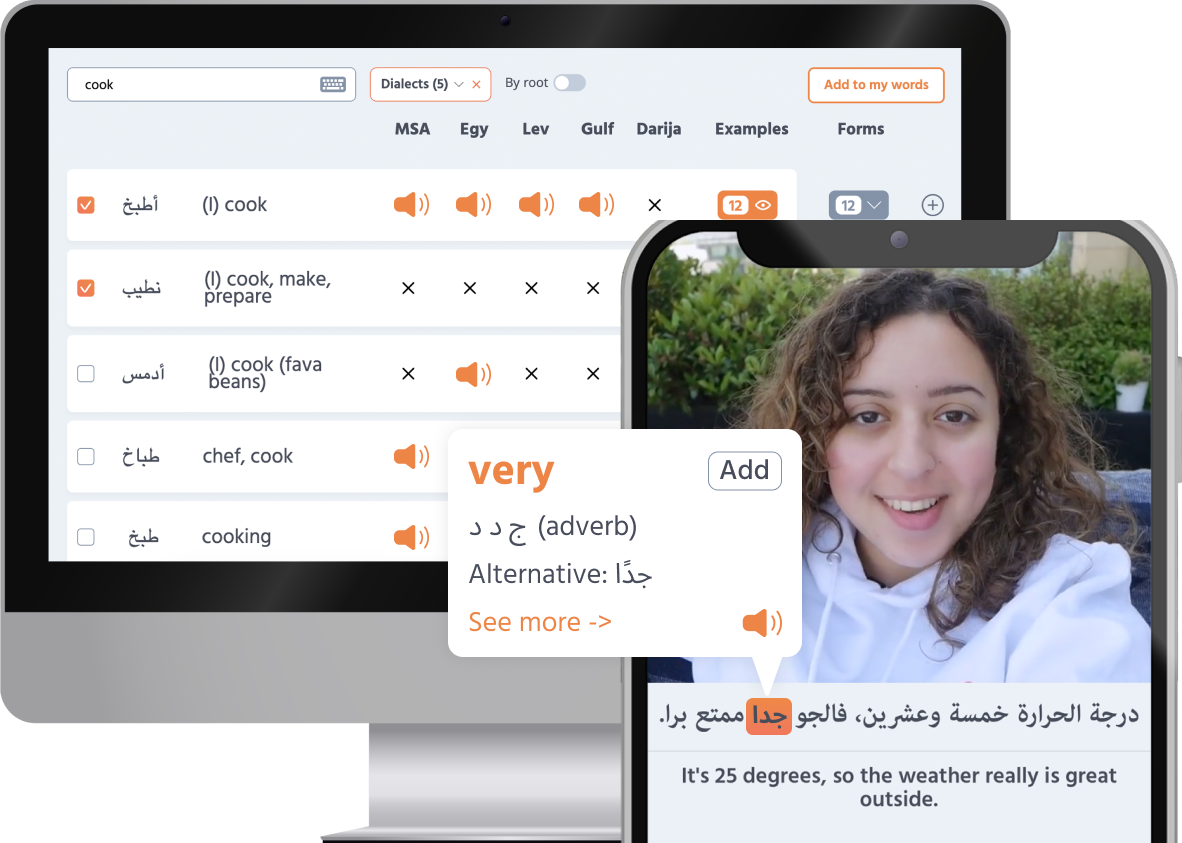If you have ever attempted to learn Arabic, you have undoubtedly observed that the majority of available resources concentrate on Modern Standard Arabic (MSA) or occasionally Egyptian Arabic . However, what if you’re interested in learning Levantine Arabic , which is the dialect used in Palestine, Jordan, Lebanon, and Syria?
Thanks to movies, TV shows, and music, Levantine Arabic is one of the most widely recognized dialects in the Arab world. Millions of people also speak it on a daily basis. However, it’s surprisingly hard to find a good way to study it online.
What is the best Levantine Arabic online resource, then? Let’s dissect the possibilities.
The issue with most Levantine resources Learners tend to face the same recurring challenges:
Restricted classes: major apps like Rosetta Stone and Duolingo don’t cover Levantine Arabic.Textbooks: useful, but primarily written for classroom settings rather than independent learners.YouTube: highly visible, yet lacking practice systems, translations, or reliable captions.Scattered PDFs: lists of phrases without context or a clear learning path.
As a result, many students end up frustrated, finding only fragments of Levantine Arabic instead of a complete solution.
👉 These frustrations explain why most learners turn to a handful of common options—each with its own strengths, but also clear limitations.
Get free Arabic videos with interactive captions for your level
Get free videos
Common choices (and their limitations) Here’s how the most popular options stack up—and where they fall short:
Mango Languages: offers a Levantine module with structured dialogues, but without authentic videos or the sense of cultural immersion that brings a language to life.TalkInArabic.com: covers several dialects and includes plenty of audio, yet it misses the interactive captions and review tools that help knowledge stick.YouTube channels: teachers like Maha or Hiba Najem share valuable lessons, but it’s up to the learner to piece everything together and keep track of progress.Textbooks (Al-Kitaab and other colloquial Levantine sections): they provide grammar and vocabulary, but without sufficient audiovisual context, the material often feels abstract and hard to apply.
Each resource has its strengths, but none delivers the full journey from curious beginner to confident speaker.
Why Playaling is unique At this point, Playaling changes the game. Instead of scripted lessons, it brings real-world videos in Levantine Arabic—TV series, interviews, and street clips—combined with interactive tools that make learning stick.
Here’s why it works:
Clickable captions: tap any word and instantly see its meaning. You can also hover over subtitles for quick definitions, making the learning experience even smoother.Audio dictionary: hear Levantine words and compare them across dialects.WordPractice™: spaced repetition ensures new vocabulary stays with you.Curated sets: focus on useful Levantine phrases, not random word lists. You can also save your own words to personalized sets for focused review.Broad coverage: videos span Syrian , Lebanese , Jordanian , and Palestinian Arabic. The library also includes music videos, movie scenes, influencer content, news clips, and inspiring talks—so you’re exposed to Levantine as it’s actually used across different contexts.Interactive exercises let you practice and reinforce what you’ve learned in a fun, hands-on way.
A Syrian couple talk about their lives and answer fans’ questions. Accessible enough for beginners, yet authentic enough for advanced learners, Playaling bridges the gap. And at just $143.88 per year (about $12 a month, or 40 cents a day), Premium is one of the most affordable serious resources available.
A few sample videos on Playaling Here are some free videos available on Playaling, each with interactive captions you can click on for instant word definitions. The clips feature real people speaking spontaneously in their own Levantine dialects—packed with everyday phrases, slang, and cultural references:
And here are authentic street-level clips, all packed with the kind of phrases and vocabulary you actually hear in daily conversations:
Beyond these, Playaling’s library also includes music videos, movie clips, influencer content, news broadcasts, and inspiring talks—offering a full spectrum of real-world Levantine Arabic as it’s actually spoken.
What is the best resource, then? Mango or a YouTube instructor can be a good place to start if you want a brief introduction. But Playaling is the most comprehensive online option if your goal is to hold real conversations and understand Levantine as it’s actually spoken. Playaling is the only platform that combines interactive tools with authentic Levantine media in one place.
👉 Ready to get started? Discover Playaling and see why universities and students are choosing it to learn Levantine Arabic and more.









